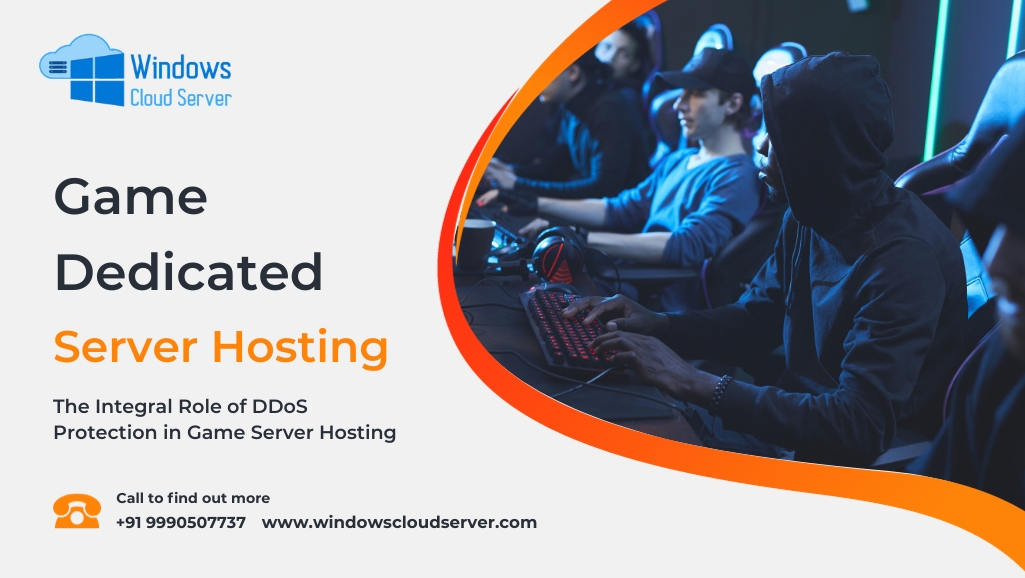The gaming industry, a juggernaut of the digital world, has witnessed exponential growth in recent times. As technology has evolved, so has the need for ensuring that these gaming experiences are seamless and secure. Enter the world of DDoS protection for Game Dedicated Server.
Introduction to DDoS and Its Widespread Impacts
Defining DDoS in Detail
DDoS, an acronym for Distributed Denial of Service, is a malevolent attempt to disrupt the regular traffic of a targeted server or network. Imagine a bustling highway suddenly flooded by countless vehicles, leading to a massive gridlock. That’s DDoS for you.
The Escalating Threat Landscape
The digital realm isn’t just about connectivity and opportunities; it brings along threats that evolve at an alarming pace. Game servers, especially, have found themselves on the receiving end of these disruptions.
The Allure of Game Servers for Attackers
Unprecedented Growth in the Gaming World
With the advent of streaming platforms and E-sports tournaments, gaming is no longer a mere pastime. It’s an industry worth billion, and naturally, it attracts attention – both good and bad.
The Role of Competitive Gaming & E-Sports
E-sports has changed the gaming landscape. As tournaments with massive cash prizes become common, the stakes are higher than ever, making the platforms enticing targets for DDoS attacks.
DDoS Protection Unveiled
The Intricacies of Identifying Malicious Traffic
DDoS protection isn’t just about diverting traffic. It’s about meticulously differentiating between legitimate players and malicious entities, ensuring that the gaming experience remains untainted.
Layered Defence: A Deep Dive
Protection against DDoS is a multi-layered affair. Like the walls of a fort, each layer plays a pivotal role in warding off threats, ensuring that the server remains impervious to attacks.
The Evolution of DDoS Protection Technology
As cyber threats evolve, so does the technology to counter them. Modern DDoS protection techniques employ AI and machine learning to pre-emptively identify and counter threats.
Key Benefits of Fortifying Game Servers with DDoS Protection
The Player Perspective: Why DDoS Protection Matters
No player wants interruptions. Downtime can turn an exciting game into a frustrating experience. For a player, DDoS protection means smooth gameplay, every time.
From a Business Standpoint: The ROI of DDoS Protection
For game developers and hosting companies, DDoS protection isn’t just about security; it’s an investment. A secure platform ensures player loyalty, positive reviews, and sustained revenue streams.
A Comprehensive Guide to Implementing DDoS Protection
Picking the Right DDoS Protection Provider
Not all protection services are created equal. It’s imperative to choose a provider that understands the intricacies of game servers and offers tailored solutions.
Continuous Monitoring, Updates, and the Role of AI
Protection isn’t a one-time affair. Constant monitoring, coupled with AI-driven insights, can ensure that best game dedicated server hosting remain a step ahead of potential attackers.
As gaming continues to evolve, so will the threats against it. But with robust DDoS protection, the future looks promising – a world where players can indulge in their favourite games without a care in the world.
FAQs
1. Is the cost of DDoS protection justified for small game servers?
Absolutely. Even smaller servers can be targets, and the cost of protection is minimal compared to potential revenue loss from an attack.
2. How has AI revolutionized DDoS protection?
AI brings predictive analytics, allowing for proactive threat identification and response, ensuring minimal reaction time.
3. Does DDoS protection also safeguard against other types of cyber threats?
While its primary focus is on DDoS attacks, many providers offer comprehensive cybersecurity solutions that cover a wider range of threats.
4. Can players themselves identify a DDoS attack?
Directly, no. But symptoms like sudden server outages or lag might hint at an ongoing attack.

